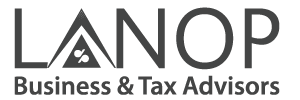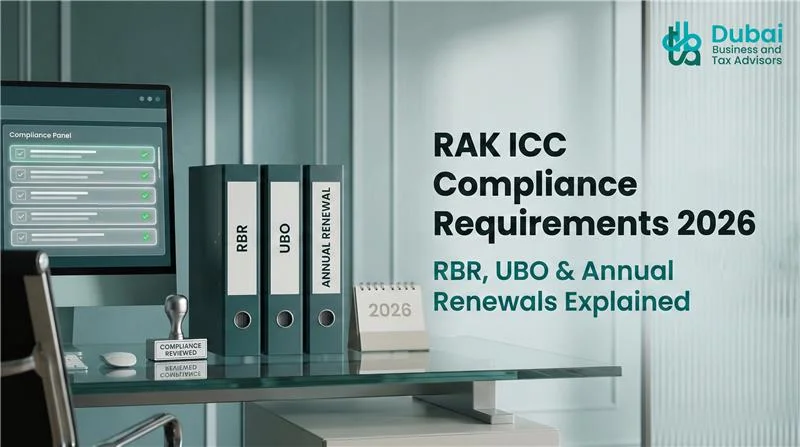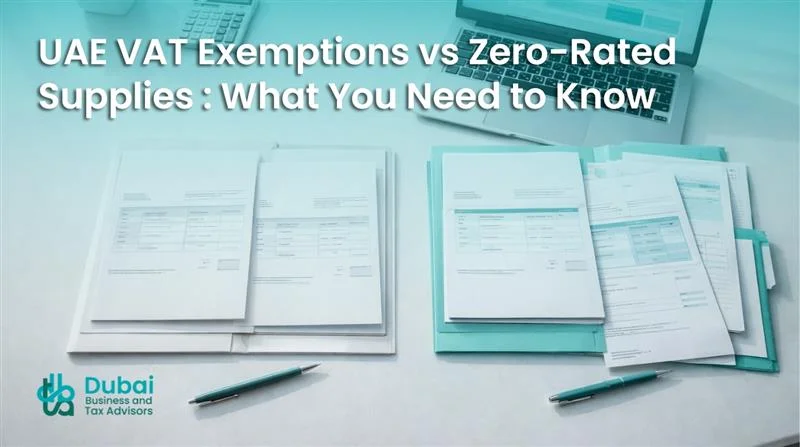Mitigate Risk, Strengthen Trust with Proactive Audit & Compliance
As your dedicated audit and compliance consultant, we design and deliver meticulously tailored compliance audit plans that span the full spectrum of your obligations, from internal audit compliance and control frameworks, through environmental compliance audit, security compliance audit, and sector-specific reviews. Statistically, companies that conduct regular audits experience 2.65× lower non-compliance costs compared to those that don’t. Each plan is crafted to your risk profile, ensuring clarity, actionable insights, and greater protection of your operations, reputation, and stakeholder confidence.

- 10+ Years Of Experience
- 1500+ Audit Completed
- Financial Experts
- 2500+ Consultation
Why Audit & Compliance Is Critical to Your Business
In today’s regulatory climate, neglecting audit and compliance exposes your business to serious hazards, from fines and legal action to reputational harm and internal chaos. Research shows 28 % of companies don’t conduct any compliance audits, leaving them extremely vulnerable.
Without regular checks, audit non compliance can spiral into major issues, undetected internal control failures, regulatory breaches, or breakdowns in governance. A rigorous compliance audit helps you catch these gaps early.
By covering areas like internal audit compliance, environmental compliance audit, and security compliance audit, you build resilience, credibility, and operational integrity.
Here’s what robust audit and compliance services deliver:
- A custom compliance audit plan tailored to your risk profile
- Assessment and reinforcement of internal audit risk and compliance controls
- Assurance across social, environmental, and security audit domains
- Continuous monitoring and remediation to prevent repeat violations

Our Scope in Audit & Compliance Services
As regulatory pressures deepen and compliance demands escalate, especially across social, environmental, security, and operational domains, having a clearly defined audit scope becomes essential. A well-scoped compliance audit determines exactly which processes, systems, controls, legal/regulatory obligations, and time periods will be reviewed. It ensures your resources are focused, risks are properly assessed, and the audit delivers meaningful insights rather than superficial checks.
We map your compliance universe, from core operations to IT and supply chains, and then execute with precision. Below is a representative list of areas often included in our engagements:
Our range of Audit & Compliance Services includes:
- Internal audit compliance
- Controls review
- Environmental compliance audit & sustainability practices
- Social compliance audits
- Labour compliance audits
- Supply chain compliance audits
- Security compliance audit, IT systems, data protection
Why Choose DBTA for Compliance Audit?
When navigating complex regulatory landscapes, you need a partner who combines depth of expertise with personalised, tech-enabled service. We don’t just audit, we embed compliance into your growth strategy, leveraging cross-jurisdiction strength, proactive planning, and senior oversight.
- Mitigate audit non compliance by anticipating risk across your operations
- Deliver a customised compliance audit plan aligned with your business goals
- Maintain full oversight via audit and compliance services that scale with you
Expertise
We deliver end-to-end audit and compliance services, covering internal audit compliance, environmental compliance audit, security compliance audit, and beyond.
Clarity
Our reports break down audit and compliance findings into clear, scenario-based guidance, no jargon, just action.
Assurance
Through rigorous control testing, remediation oversight, and ongoing monitoring, we minimise audit non compliance risk and reinforce stakeholder trust.
Process of a Compliance Audit
A compliance audit is more than a checklist, it’s a methodical journey designed to evaluate how well your organisation aligns with laws, standards, internal policies, and risk expectations. According to AuditBoard, a compliance audit is a formal evaluation of an organization’s adherence to applicable regulatory frameworks and criteria.
This process helps identify gaps in systems, expose weak controls, and validate that your compliance functions (incl. internal controls, environmental practices, security protocols) genuinely operate as intended. It’s a vital component of sound governance, risk management, and stakeholder trust.
Define Audit Scope & Objectives
We start by clearly defining what your compliance audit will cover, such as internal controls, environmental, social or security domains, and set objectives aligned with your business risk profile. This clarity ensures that resources are focused and everyone understands the audit’s boundaries and goals.
Perform Risk Assessment & Gap Analysis
Next, we identify key compliance risks, assess control effectiveness, and compare your current state against regulatory and internal standards. This gap analysis helps spot audit non compliance vulnerabilities early, guiding us where to concentrate testing and remediation in your audit and compliance plan.
Conduct Fieldwork & Evidence Collection
During the fieldwork phase, we gather documentation, interview staff, observe operations, and test controls across the scoped areas. From internal audit compliance checks to security and environment audits, we document findings and flag any exceptions or areas requiring further scrutiny.
Analysis, Reporting & Remediation Planning
After evidence collection, we analyze results and produce a detailed report. Findings are prioritized by risk level, root causes are explained, and a compliance audit plan for remediation is proposed. We also engage your team to help implement the recommended controls.
Follow-up, Monitoring & Assurance
Compliance is ongoing, we revisit previously flagged findings, verify remedial actions, and integrate into your internal audit risk and compliance framework. Regular follow-ups and checks ensure you maintain control, adapt with evolving regulation, and minimise audit non compliance risk in future cycles.
What Damages Can Delaying a Compliance Audit Cause Your Business?
Delaying a compliance audit can result in cascading risks across your operations. Without timely assurance, minor gaps often grow into systemic issues affecting finance, governance, and regulatory standing. Studies show that failing to comply with data protection or regulatory mandates can cost organizations an average of $14.82 million in penalties, disruption, and associated losses. These costs starkly outweigh what compliance would have cost upfront.
When compliance is treated as optional, businesses also suffer from eroded stakeholder trust, regulatory scrutiny, and internal control failures. What starts as one missed requirement can evolve into multiple violations across social, environmental, security or financial domains, compounding remediation costs and reputational damage. Every delayed audit is a window for error to deepen.
Here’s what your business may face if you push off a compliance audit:
- Heavy fines, penalties & legal costs triggered by regulatory breaches
- Operational disruption & productivity loss when investigations or forced remediations interrupt normal work
- Reputational damage that undermines trust with customers, partners, and regulators
- Rising future compliance expense as multiple gaps accumulate
Proactively conducting a compliance audit doesn’t just mitigate threats, it transforms risk into opportunity. By uncovering control weaknesses early, you can strengthen processes before issues escalate. A strategic audit empowers you to sustain stakeholder confidence, maintain regulatory alignment, and embed a compliance culture that scales with your business ambitions.


Ready to Take Control of Compliance Before It Controls You?
Waiting to audit today’s risks can lead to tomorrow’s crises. At Dubai Business & Tax Advisors, we believe compliance is a continuous journey, not a one-time checkbox. Our audit and compliance consultants will partner with you to design a robust compliance audit plan, uncover weaknesses, and guide you step by step toward full, sustainable alignment with regulations.
We combine technology and human insight, ensuring each audit is rigorous, clear, and directly actionable. You’ll never get a dense, jargon-filled report, just transparent findings, meaningful recommendations, and support through remediation.
- Tailored audit and compliance services mapped to your industry and risk profile
- Deep dive into internal audit compliance, environmental, security, and social domains
- Remediation plans with clear timelines, responsibilities, and follow-up
- Ongoing monitoring and assurance to prevent audit non compliance from creeping back in
Let’s convert your compliance vulnerabilities into strengths. Book your 30-minute free consultation today and let us show how our human-led, tech-enabled approach builds confidence, controls, and credibility.
UAE Business Setup - FAQs
What is a compliance audit and why is it important?
Delaying a forensic audit allows fraud to expand, evidence to degrade, and controls to weaken. Critical documentation may be lost, memory fades, and investigations become harder, diminishing the value of any forensic audit report.
How is a compliance audit different from a financial audit?
Financial checkups confirm if money figures are right; however, compliance reviews ensure rules are followed, covering things like laws, safety, and company policies. Instead of solely checking accounts, these delve into how an organization operates. Though both matter, compliance checks prevent problems stemming from breaking regulations, not simply accounting mistakes.
Who needs to perform internal audit compliance within an organization?
Businesses of any size gain something from checking their own work to meet standards. This is particularly vital if they face strict rules or operate across countries. These checks, done by in-house groups or outside experts, verify systems function as intended, spotting problems regulators might find later.
What are the core steps involved in an audit non compliance review?
First comes preparation, defining what needs checking, alongside figuring out potential problems. Then field work starts; gathering proof, examining everything, before a report details findings. Next, fixing issues is key, with continued monitoring to ensure things stay on track. Throughout this process, reviewers hunt for weaknesses, oversights, or broken rules. Ultimately, the goal is transforming hidden dangers into clear improvements.
Can compliance audit services cover multiple domains (environment, security, etc.)?
Today’s audit work covers lots of ground, environmental rules, data security, ethical practices, how things are run internally, alongside standard checks. Combining these areas means everything aligns, we don’t repeat effort, instead providing a complete picture of where you stand with regulations.
When should an organization schedule a compliance audit?
Regular checkups, yearly at a minimum, are smart, especially when rules shift, the business landscape evolves, or things expand. Major happenings such as combinations with others, entering new areas, updated guidelines, or even hints of trouble necessitate instant reviews. Putting it off could mean running afoul of regulations.
What happens if business fails a compliance audit?
A failed checkup isn’t a dead stop, however it does point to real trouble spots. Expect details outlining problems, how risky they are, alongside steps to fix things. Dismissing these issues could result in penalties, even losing permission to operate – damage your good name, or cause bigger messes down the road.
How do audit and compliance consultants assist businesses?
We navigate audits from start to finish, defining what needs checking, spotting potential issues, gathering proof, creating reports, fixing problems, then keeping watch. We specialize in areas like environmental concerns, security protocols, plus rules spanning the UK and UAE, building lasting compliance solutions.
What are the benefits of a compliance audit for businesses?
You’ll sidestep trouble, skip fines from audits, gain confidence from those involved, tighten up how things work, run smoother, be prepared for rules, also safeguard what people think of you. Rather than simply checking boxes, this shifts into a powerful advantage.
How do organizations maintain continuous compliance after an audit?
To stay on track after checks, we continually watch things, revisit procedures, run audits, use automated systems, likewise refresh rules and how we work. It’s vital – falling behind isn’t an option.
What is a compliance audit plan and how is it created?
To check if things are running smoothly, a compliance audit plan lays out what we want to achieve, where we’ll look, like environmental impact, safety, or how well rules are followed, what dangers exist, how often we’ll check, which items we’ll examine, when everything happens, also who will be involved. Usually, both those doing the checking and leaders work together on this plan so everyone agrees and it works best.
How does internal audit risk and compliance influence the audit plan?
The team spots trouble areas, where things often go wrong, rules get broken, or risks loom large. This helps them target their work, concentrating on what could truly cause problems instead of scattering efforts everywhere.
What is audit readiness and why is it important?
Being prepared for an audit involves checking beforehand that everything’s set, records, safeguards, written rules, processes, so when reviewers show up, things run smoothly. Otherwise, audits turn into a scramble, demanding much effort and expense. Advance work minimizes shocks, makes the process quicker, alongside better outcomes.
How long does the compliance audit process take?
Duration depends on scope, domains, business size, complexity, geographic coverage, and control maturity. A small single-domain audit may take a few weeks; a multi-domain, cross-jurisdiction audit could extend months. Planning, stakeholder readiness, and responsiveness significantly affect timeline.
What criteria are used to select audit samples?
Auditors choose samples based on materiality, risk, control criticality, transaction volumes, and historical findings. The sample should represent the full spectrum of processes, geographic units, and time periods. Methodical sampling ensures findings are representative, not anecdotal.
What evidence do auditors collect in a compliance audit?
Evidence includes policies, procedures, logs, transaction records, third-party contracts, interviews, site visits, IT logs, dashboards, system configuration, and control tests. The goal is to verify that controls described in policy are actively functioning in reality.
How do auditors evaluate control effectiveness?
Auditors test whether controls operate as intended, under diverse conditions, for a sustained period. They perform walkthroughs, control testing, re-performance, observations, and interviews. If controls repeatedly fail or produce exceptions, they’re deemed ineffective or noncompliant.
How are noncompliance findings rated / prioritized?
Findings are categorized by severity (e.g. high, medium, low) based on likelihood, impact, and remediability. High-severity issues (e.g. regulatory violation) demand immediate action; medium or low issues may be scheduled in future remediation cycles.
How are compliance audit results reported?
Results are presented in a structured report: executive summary, scope & methodology, findings (with root causes), risk rating, remediation recommendations, timeline, responsibilities, and improvement roadmap. A debrief meeting often accompanies release to ensure clarity and alignment.
What is the role of follow-up and monitoring after the audit?
Follow-up ensures that recommended actions are implemented and effective. Auditors revisit prior findings, validate remediations, and monitor ongoing control performance. Without follow-up, control lapses may reemerge, increasing audit non compliance risk over time.
What does an environmental compliance audit include?
An environmental compliance audit examines waste disposal, emissions, water usage, licensing, pollution controls, hazardous materials, and environmental permits. It verifies adherence to local, national, or international environmental obligations, especially relevant in Dubai and UAE where standards are tightening.
How is a security compliance audit conducted?
A security compliance audit assesses cybersecurity, data protection, access controls, encryption, incident response, and regulatory frameworks like GDPR or local data laws. Auditors review IT logs, system configurations, policy enforcement, encryption practice, penetration tests, and vulnerability scans.
How do cross-border tax and compliance risks affect audits?
When a business operates across UAE, UK, EU, or Pakistan, audit scope must include foreign tax, transfer pricing, dual residence, withholding rules, and jurisdictional controls. Missing cross-border compliance can lead to surprise liabilities or regulatory conflict during the audit.
Does a compliance audit cover social / labour / supply chain obligations?
Yes. Many audit and compliance services encompass social compliance audits, checking labor standards, supply chain ethics, working conditions, child labor, and human rights compliance. For companies with global suppliers, this is crucial to avoid reputational or regulatory penalties.
Is compliance audit required under UAE Free Zone laws?
Many UAE Free Zones require annual auditing of financials and compliance reporting. While not all explicitly mandate social or security audits, ensuring full compliance reinforces your standing with regulators and helps preempt audit non compliance in cross-domain reviews.
Does internal audit compliance differ in UAE vs UK?
Yes, local laws, regulatory scope, licensing regimes, data protection norms, and enforcement vary. An internal audit compliance program must reflect both jurisdictions’ obligations. DBTA’s cross-jurisdiction expertise ensures your compliance framework works seamlessly across UAE, UK, and beyond.
What is the impact of UAE Corporate Tax on compliance audits?
With UAE’s introduction of corporate tax, businesses must audit their tax policies, transfer pricing compliance, disclosures, and financial statements to ensure alignment with CT law. A compliance audit ensures all CT implications, documentation and adjustments are defensible during inspections.
How do you integrate compliance audit with tax advisory services?
DBTA combines compliance audits with tax advisory, ensuring findings feed into tax structure optimization, transfer pricing, and risk mitigation. When audit and tax teams operate together, clients gain a holistic solution, closing compliance gaps while minimizing tax exposure.
Can compliance audits uncover hidden liabilities or exposures?
Absolutely. A well-executed audit can reveal unreported obligations, unsupported deductions, regulatory nonconformities, weak controls open to fraud, or cross-border exposure. Early detection allows remediation before external audits or regulators expose them.
How much does a compliance audit cost across jurisdictions?
Costs depend on scope, domains, geography, entity count, sector complexity, and audit maturity. Because DBTA is tech-enabled and disciplined, we aim to deliver value-based pricing: transparent tiers aligned with your needs and delivering ROI via risk prevention.
How should businesses prepare for a compliance audit?
Preparation involves organizing documentation, updating controls, performing mock assessments, ensuring transparency in operations, training staff, and vetting systems. Good prep reduces surprises, speeds fieldwork, and supports favourable outcomes.
What are common audit non compliance pitfalls?
Pitfalls include missing records, weak internal controls, failure to update policies, outdated systems, lack of staff awareness, untested data security, poor cross-border structuring, and absence of follow-up. These gaps often compound over time if ignored.
Can smaller businesses benefit from compliance audits?
Yes, even small enterprises face regulatory, data, environmental, labor, and security obligations. A targeted compliance audit scales with business size, helping identify critical risks before exposing the business to disproportionate fines or reputation damage.
How does technology improve audit and compliance efficiency?
Automation, dashboards, sampling tools, data analytics, and real-time monitoring speed evidence gathering, control testing, and reporting. Technology reduces manual errors, accelerates cycles, and frees auditors to focus on insight, not just procedures.
Who typically leads compliance audit engagements
A senior audit and compliance consultant or audit partner leads engagement design, scoping, and oversight. Fieldwork may be done by junior auditors, but leadership involvement ensures quality, credibility, and alignment with business strategy.
Can compliance audit findings be challenged or appealed?
Yes, audited entities may question root causes or severity categorization. Good audit practice allows for dialogue, clarifications, or re-testing. The goal is not rigid judgment but constructive remediation, so fair challenge mechanisms are part of high-quality audits.
How often should compliance audit programs be updated?
Annual review is a minimum, but updates may be needed more frequently when regulation changes, business lines expand, systems are upgraded, or acquisitions occur. Agile audit plans stay aligned with evolving compliance landscapes.
What’s the role of governance in compliance audits?
Strong governance (board, audit committee, executive oversight) ensures accountability, independence, and corrective action. Compliance audits feed into board reporting, regulatory disclosures, and strategic risk planning, positioning compliance as a strategic asset, not a cost center.
How to communicate compliance audit results to stakeholders?
Use clear executive summaries, dashboards, color-coded risk levels, scenario analysis, and action plans. Framing in business terms (cost, control, reputation, growth) helps stakeholders understand the impact and support remediation efforts.
Why choose a firm combining audit compliance with tax & cross-border expertise?
Firms like DBTA bring synergy: your compliance audit feeds directly into tax optimizations, entity structuring, and strategic planning across UAE, UK, Pakistan, and EU. You avoid fragmented advice, duplication, and hidden risks, everything is connected under one trusted partner.
Our Trusted Partners





Our Client Testimonials
Our clients, ranging from startups to multinational corporations in Dubai, benefit from our comprehensive and strategic approach to business advisory. Our team of highly qualified business and tax advisors takes pride in ensuring regulatory compliance, operational efficiency, and sustainable long-term success for businesses across various industries





Khalid Al Rashid
Layla Hassan
Omar Saeed
Noor Al Mazrouei
Faisal Hamdan
Connect with Reliable Dubai Business Consultants
Certified Chartered Accountants
Be stress-free with top-tier accounting and financial expertise in Dubai.
Ensure Data Confidentiality
Using advanced accounting technology and controls for data security.
Achieve Measurable Results
Making sure your financial strategy aligns with your goals and objectives.
Speak to an Expert! Call Now for a Free Consultation. +971568191060 or





